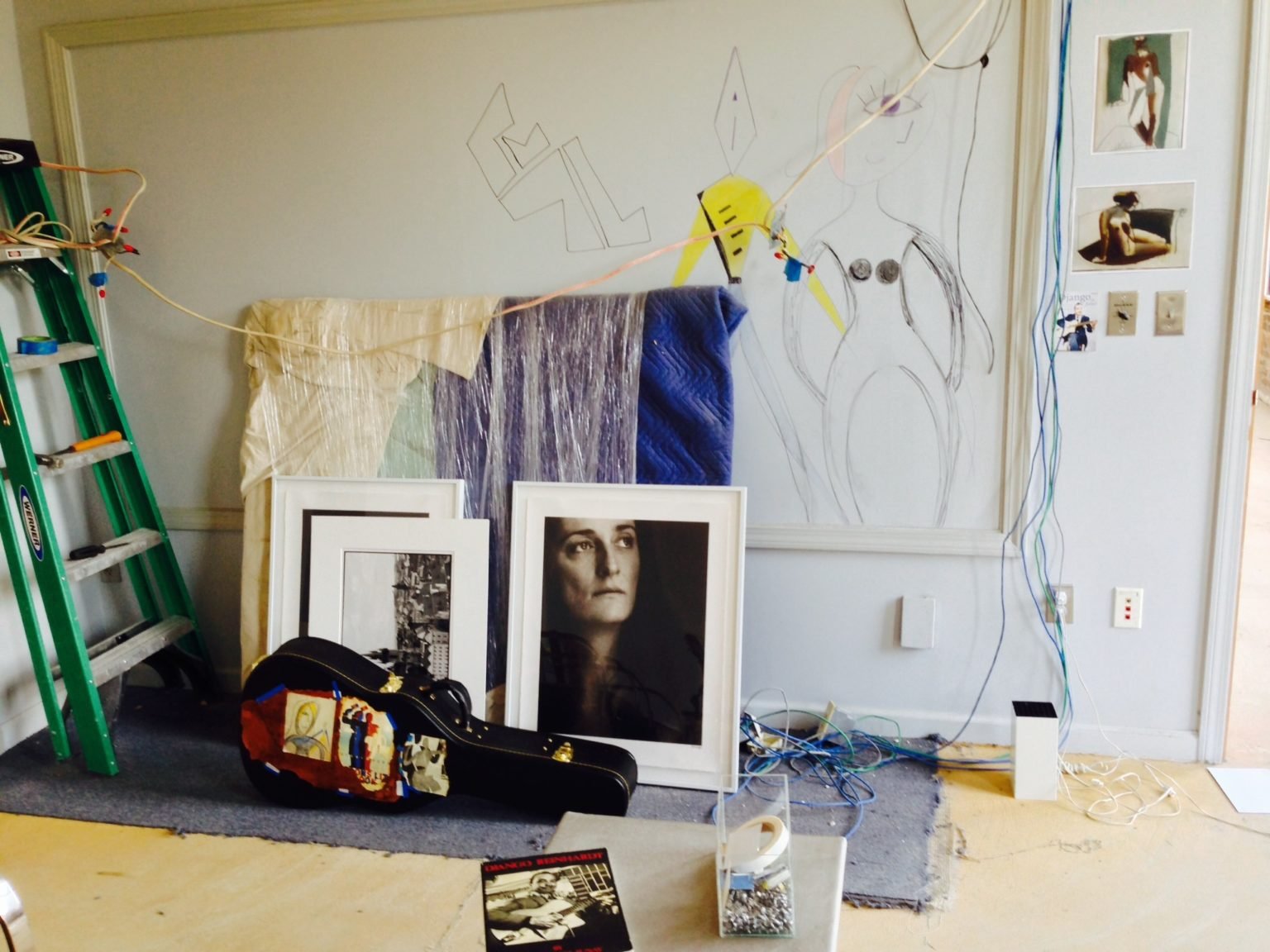Amherst
Paul Ickovic, photographer & friend
Essay by Naila Moreira, written in 2017
The first time I met Paul Ickovic, whom I came to know as Pablo, he interrupted me as I sat working at an outdoor table of a cafe in Northampton, Massachusetts. He said he was impressed how fast I could type while staring off into space instead of at my screen.
Feeling safe in that public place, I smiled and looked him over. A lanky, disheveled gentleman in a patched tweet jacket, he had the studied elegance of a down-at-heel European aristocrat.
He offered me a line of poetry he said he’d written and never used. “A gift,” he said. “To use as you see fit.” I took the slip of paper he handed me.
Here I sit, alone, in the theater of fate, built by my own thoughts and my own hands
“Thank you,” I said. “But I never use other people’s words.”
“But it’s a gift,” he said. “You should use it.” Quickly distracted, he pointed behind me. “Just look at that wall,” he said. I lifted my gaze to see a latticework of vines scrawled like a living Jackson Pollock across concrete. Green near the bottom, the vines gradually broadened upward to intertwine with dead stems punctuated by curled commas of browned leaves.
“Beauty all around us,” he went on. “We just have to look.”
His brief statements that first afternoon called my mind to what we too often lack in our lives: perception through self-perception, a re-imagining of the seen world. Around my café table I began noticing the balconies of metal and wood linked by fire escapes, patterns of vertical and horizontal lines. I noticed the brick row houses, the gold number on each door, the gold knockers and letter slots, the wrought-iron fences, disorderly flower boxes.
“It’s like contemporary art,” I said, of the vine-covered wall behind me.
“But no painter could do that,” he said. “No painter could do that.”
Designed to impress me, his comments that afternoon did exactly what he planned: they made a friend and an admirer out of me. That meeting began my introduction to the whirlwind, art-shaped mind that is Pablo Ickovic. I say introduction because he’s a person one may never fully be able to know. He once asked me to write a poem about how I perceived him:
Driving, scattered, a Tinguely machine
Throwing itself apart:
No evident core, only fireworks
And angles. The suit hangs disheveled
On a phantom frame. The heart is not here
But flying on some distant wind,
A pigeon, bowled over by hurricane force
Between the river and the bridge.
He hated it. He objected, I think, to “No evident core.” But I didn’t intend to suggest he had no inner self – only that the self under his skin is escapist and elusive, less a chameleon than a traveler, flighty and quick, not easily held to earth. He’s a vagrant by constitution, a rolling stone. “Catch me if you can,” he once said. He’s always jetting off to some new place: Argentina, New York, Florida, Slovenia, sending back a trail of post cards and emails that track his unlikely trajectories.
But no matter how far he wanders, like a carrier pigeon he always seems to return to those he befriends. He’s a lover by nature, an old-fashioned romantic. He’s fond of saying his only real subject is love. His website quotes Mozart: “Neither a lofty degree of intelligence nor imagination nor both together go to the making of genius. Love, love, love, that is the soul of genius.”
In spite of this claim, Pablo’s work seldom explores the simplicities of traditional romantic love. He has an uncanny ability to see people, to grasp their character within minutes of meeting them. I think that, above all, is what makes him a great photographer.
He’s bullheadedly taciturn about the meaning of his photos. Once, I invited him alongside two other photographers to speak about his work at the local library. In his whole presentation he said almost nothing. After commenting that he preferred the photos to speak for themselves, he simply flipped through the slides one after the other, slowly, without saying a word. He bewitched the audience nevertheless. To a person they afterwards said they loved it.
His photographs catch contemporary people moving through a world marked by the old – old architecture, statues, landscapes, history. The people show up like flowers against a large past that dwarfs their part in it. Like much of the great art of the 20th century, Pablo’s photos depict the alienation and boredom of contemporary urban life, a life that seems to churn over and above the individual without ever truly including him or her.
His images capture motivation, secret thought, boredom, reflection, inner lives. Conflict, error, lust, fear, restraint, pride – he’s able to spot the uglier facets of the faces he catches by surprise and expose them at the unexpected moments they burst forth, making them paradoxically attractive in being so human.
But it’s always an individual he loves, even in exposure. As an artist, as a friend, Pablo reminds us what we’ve lost, but also of who we could be: adventurers, artists, travelers, perceivers – alone, in the theater of fate, built by our own thoughts and our own hands.
A corner of Paul Ickovic’s studio, Amherst, MA
Paul reading Naila Moreira’s poem Grey
From Gorgeous Infidelities, a book of photographs and poetry by Paul Ickovic and Naila Moreira
This essay and recording are reproduced by gracious permission of Naila Moreira.
The original post on her blog can be found here. Her website: nailamoreira.com and Instagram page.
